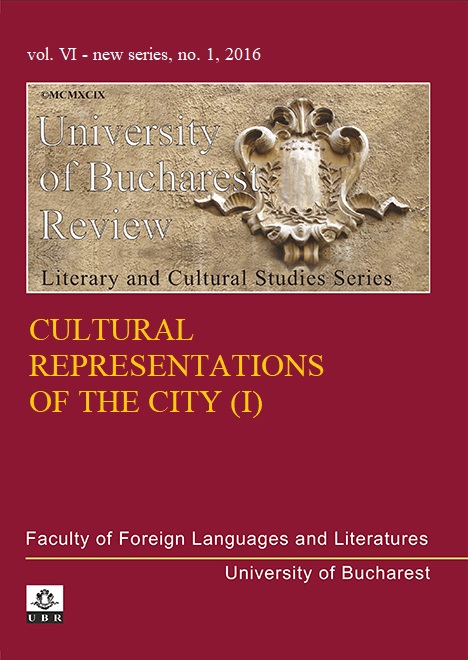THE CONSTRUCTION OF ETHICAL SUBJECT AND
HETEROTOPIAS IN PAUL AUSTER’S CITY OF GLASS
THE CONSTRUCTION OF ETHICAL SUBJECT AND
HETEROTOPIAS IN PAUL AUSTER’S CITY OF GLASS
Author(s): Hattice BaySubject(s): Fiction
Published by: Editura Universităţii din Bucureşti
Keywords: city; power; heterotopias; ethics; resistance; subjectivity;
Summary/Abstract: The initial stimulus for this article came from my observation of thewidespread fixation on the crisis of the city in recent urban studies and urban fiction. Itis a space that looms large and monstrous over the urban individual who is eitherrelegated to the position of an observant walker or who assumes assimilation to theenvironment of image.1 Paul Auster’s City of Glass allows me to take issue with thecommon discourse on cities as homogenized, sinister and culturally uniform spaces andthe subjects as victimized and passivized entities.2 In fact, Auster’s urban space dealswith a wider range of issues beyond those of contemporary urban crisis. Embedded inAuster’s urban novel are provocative theoretical perspectives on how the charactersdefy the traditional view of power as a centralized force and resistance only inoppositional terms, as that which is mounted from outside and against those who holdpower. Within the framework of Foucault’s notions of heteretopia and power, it will beargued that the spaces of power and resistance are intricately connected and power isenabling as it enables the emergence of resistance (heterotopias of deviation) andalternative ways of becoming otherwise. Accordingly, this article investigates howspaces are power-ridden and contested sites and how it is possible to ‘ethicalize’ spacesby a participatory and relational enactment of neglected and underimagined city spacesand denizens. Eventually, it will be argued that City of Glass to some extent creates anurban vision which highlights the always emergent, processual and progressive spacesthat enable the construction of a subjectivity that is transgressive and moral (responsiveand responsible) as well as a space that is ethical (inclusive and democratic).
Journal: University of Bucharest Review. Literary and Cultural Studies Series
- Issue Year: VI/2016
- Issue No: 1
- Page Range: 172-181
- Page Count: 10
- Language: English

